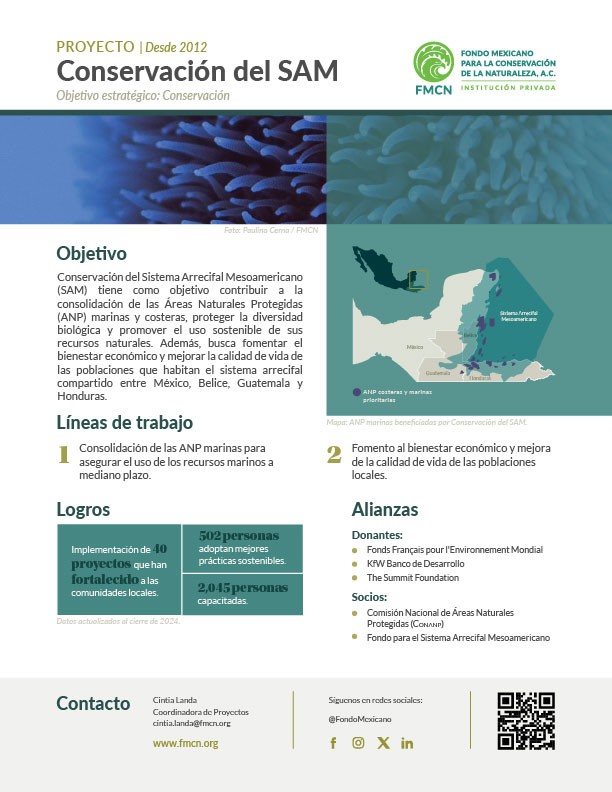Mesoamerican Reef Conservation
Supporting marine and coastal protected areas in Central America
The Project
The objective of the Mesoamerican Reef Conservation (SAM, acronym in Spanish) project is to contribute to the consolidation of marine and coastal Protected Areas, the protection of biological diversity, and the sustainable use of their resources, in addition to promoting the economic well-being and improving the quality of life of the resident populations of the reef system shared by Mexico, Belize, Guatemala, and Honduras.
Context
The lines of work that guide the actions of the Mesoamerican Reef Conservation project are:
- Consolidation of marine protected areas (MPAs) to ensure the use of marine resources in the medium term.
- Promoting the economic well-being and improving the quality of life of local populations.
The Mesoamerican Reef Conservation project is focused on the reef shared by Mexico, Belize, Guatemala, and Honduras.
Achievements
Since 2015, a total of 40 projects have been approved, strengthening local communities in areas such as marine monitoring, coral restoration, best practices in tourism, solid and liquid waste management, climate change, and participatory management of PAs.
During the first half of 2025, the organization Comunidad y Biodiversidad continued the activities of the project “Strengthening financial resilience for youth and women-led solutions in fishing communities of the Mexican Caribbean,” through which two community groups will receive seed funding and technical support.
For its part, Centinelas del Agua continued strengthening the fishing cooperatives of the Yum Balam Flora and Fauna Protection Area in integrated water management and solid waste management in the Yalahau Lagoon.
Both initiatives, developed under the Small Grants Program of the MAR Fund, reflect the commitment to strengthening local capacities and promoting sustainable solutions.
Allies
Donors:
- Fonds Français pour l'Environnement Mondial
- KfW Development Bank
- The Summit Foundation
Partners:
- National Commission of Natural Protected Areas (CONANP, acronym in Spanish)
- Mesoamerican Reef Fund
